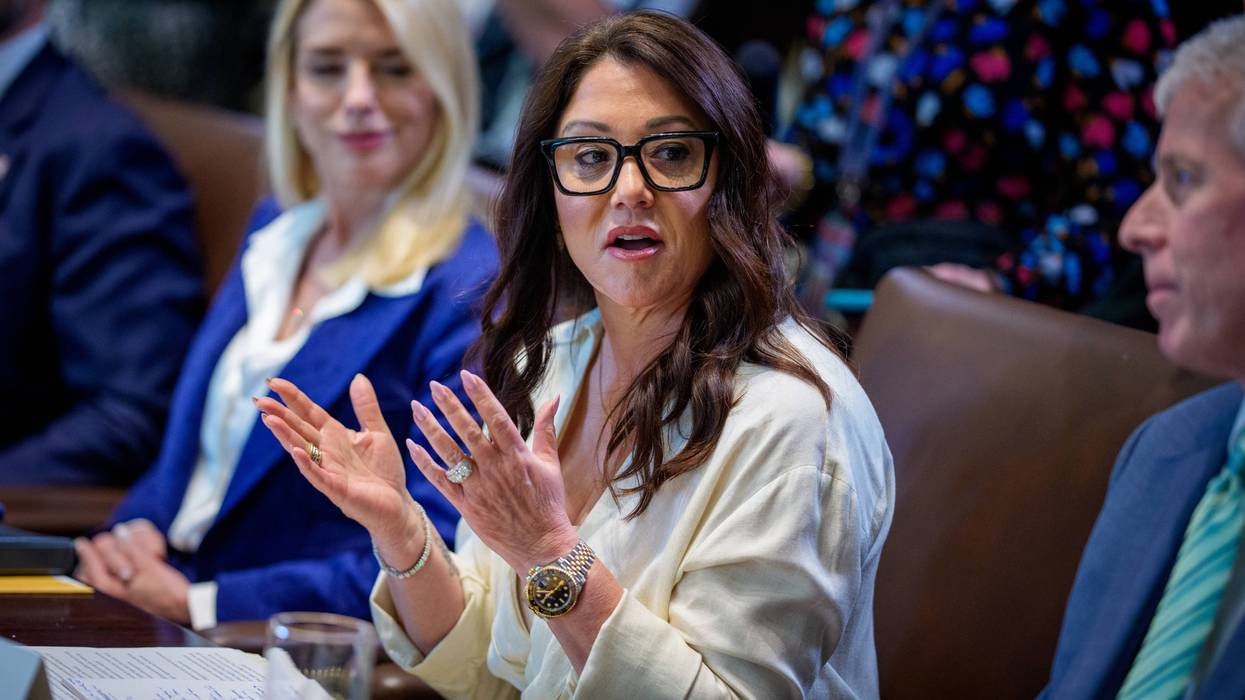Victims of the fires raging across Los Angeles today demanded justice and accountability from the actors most responsible for the climate change that exacerbated suffering and losses: the Big Oil companies that created the climate conditions driving the fires.
While there have always been fires, and sparks that start fires, the survivors—who were joined by a climate attribution scientist and legal experts—insisted that climate change is what transformed the sparks that started these fires into the raging conflagrations that destroyed their homes and so much else.
Below is a selection of quotes from the event. A recording of the event is available here.
“My mom, a proud Palisadian, passed away in January 2020,” said Danielle Levanas, a survivor of the 2025 Palisades fire. “She had lovingly renovated our home with my dad, her partner of 40 years. Losing that house in some ways feels like losing my mom all over again. Growing up in the Palisades of the 1980s and 90s, we were no strangers to natural disasters. But the level of destruction the Palisades and Eaton Fires have left us is unprecedented. The disasters we’re seeing today are not natural. They are crimes. My elementary and middle school, our rec center, our library, the local community theater, the banks, post office, grocery stores, our favorite restaurants, they all have been taken out. Climate change and the impact of fossil fuel companies have truly upended our lives.”
“The science is clear that hot, dry, fire-prone conditions are becoming more common in California, in large part because of human-caused climate change,” said Dr. Kristina Dahl, vice president for science at Climate Central. “Science can tell us what this contribution has been, but it falls to the public and the law to decide whether or how those emissions translate into financial responsibility.”
Sam James, whose family has lived in Altadena for five generations, described how her community has been impacted. “Our roots in the Altadena/Pasadena area go back to at least 1890, with a legacy of building opportunities for Black generational wealth, primarily through home ownership. Much of this progress has been devastated by the Eaton fire, which destroyed the homes of several of my family members. I am working through the Altadena Recovery Team to help fire survivors heal and rebuild. But it should not continuously fall on us to address the physical and emotional toll of this crisis caused by the actions of a powerful few. It’s time for Big Oil to be held accountable and take real, measurable steps toward a more sustainable future.”
Clara Vondrich, senior counsel at Public Citizen, underscored the need to target the root cause of climate disasters: “As investigators puzzle over the immediate cause of the fires – a dropped cigarette, arson, bad power lines – the real culprit is on the loose and stacking kindling for the next fire. Today, as Californians are dying, Big Oil is thriving with unmatched profits, rapid growth, and a promise of anything-goes deregulation by the new administration.
Allen Meyers, whose family lost everything in the 2018 Camp Fire, also shared his story, explaining that the LA fires this week are not an isolated phenomenon. “The fires burning in Los Angeles right now mirror what we’ve been through in Paradise. And these catastrophes are going to keep happening, more and more often. We can’t wait for more lives to be lost. We need to hold Big Oil accountable and demand bold action on climate.”
Margaret Koster, who survived the 2017 Redwood Valley Fire, compared Big Oil’s conduct to that of Big Tobacco, saying, “As with smoking and lung cancer, corporate industry had knowledge of the link between burning fossil fuels and climate disruption, but suppressed it. It took concentrated social, political and legal pressure to force the tobacco companies to take corrective action and the same is true with fossil fuel companies.”
Participants on the call went on to describe exactly what they meant by calling for Big Oil accountability. Maya Golden-Krasner, senior attorney with the Center for Biological Diversity’s Climate Law Institute, said, “Much of our Altadena community is gone. Our friends’ houses, gone. Our synagogue, in ashes. Our favorite pizza places, our post office, maybe our vet, and much, much more, all gone. Many shops and restaurants in our town are owned by locals who lost both their businesses and their homes. I’m grieving. And I’m outraged at the failure to hold fossil-fuel polluters accountable for the devastation they’ve caused by disrupting our climate. It’s time to pass a California ‘climate superfund’ bill to make the largest fossil fuel polluters pay a portion of their huge profits to address the climate consequences they’ve helped create and help California adapt to climate-fueled disasters. Vermont and New York have already passed similar bills. California needs one, too, so we can begin to put billions of dollars in climate costs back onto the corporate polluters where they belong.”
Aaron Regunberg, director of Public Citizen’s Climate Accountability Project, added that legal action was also necessary. “The climate effects driving these fires are the direct and foreseeable—and, in fact, foreseen—consequences of the actions of fossil fuel companies that knowingly generated a huge portion of all the greenhouse gas emissions that caused this crisis, and fraudulently deceived the public about the dangerousness of their products in order to block and delay solutions that could have avoided these catastrophes. We have a phrase in the law for when someone consciously disregards a substantial risk of causing harm to another person: criminal recklessness. And that’s what we mean when we say that while these losses are unspeakably tragic, they aren’t just tragedies. They’re crimes. And the victims and survivors of these climate crimes deserve justice. It’s time for all of our public officials—our state legislators, our local councilors, our county prosecutors, and everyone in between—to act accordingly.”





